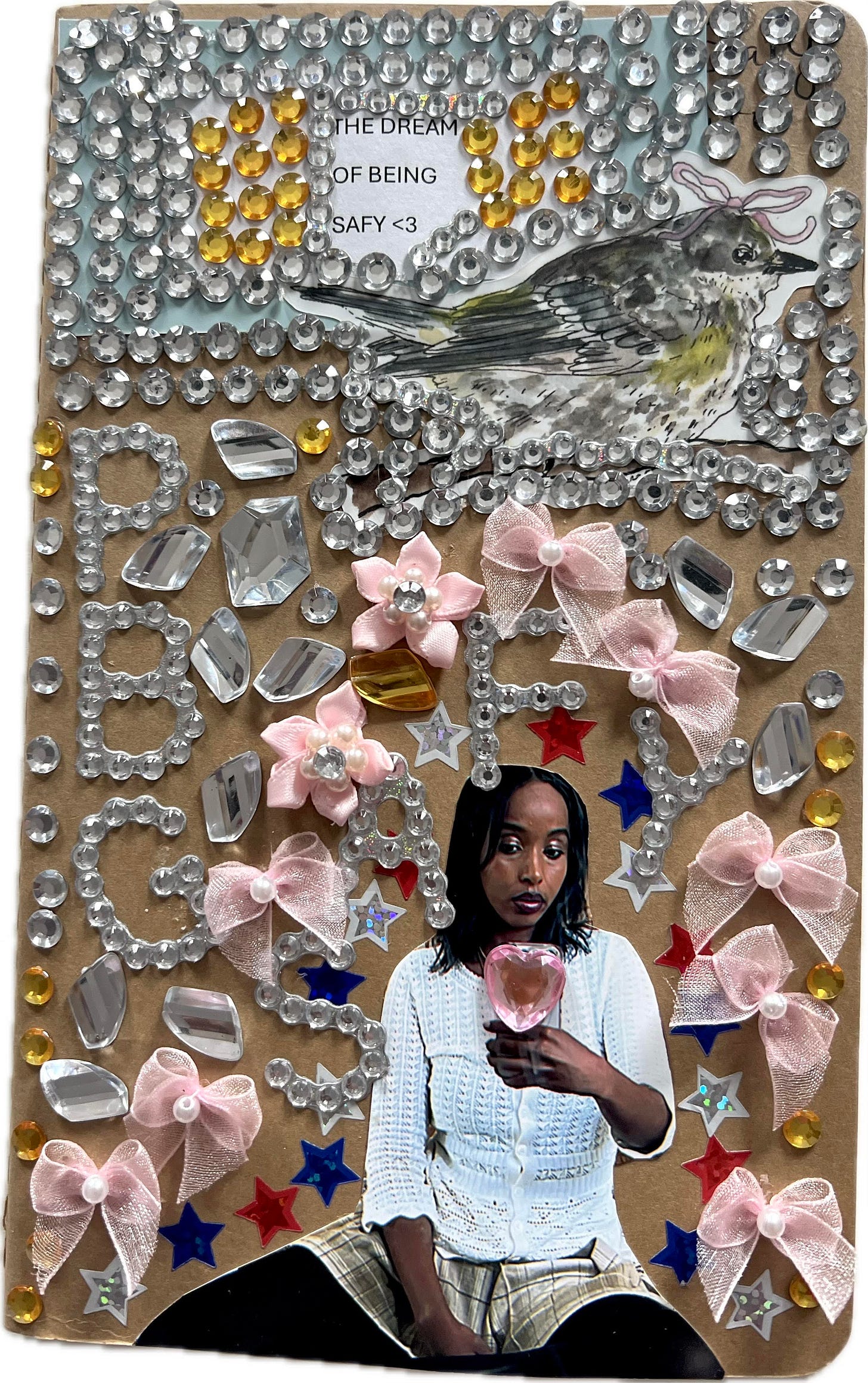The it girl is a young woman who captures the public’s admiration and sets trends, becoming a model of desire for others. She exemplifies René Girard’s theory of mimetic desire and rivalry, which posits that our desires are not formed in isolation but are imitative, shaped by observing and internalizing the desires of others. The it girl’s appeal is not intrinsic but constructed through social imitation; people desire to be like her because others do. This cycle of imitative desire amplifies her status and influence, creating a feedback loop of escalating admiration and aspiration. The it girl becomes a focal point of mimetic rivalry as countless individuals compete to emulate her perceived perfection and success.
In a predominantly white society, white women often experience mimetic desire and rivalry with nearly every white it girl they encounter. The ubiquitous presence of white role models in the media means that white women are constantly confronted with figures they are expected to emulate, exacerbating feelings of inadequacy. This relentless cycle of comparison and competition reveals the pervasive impact of mimetic desire.
However, the cycle doesn't end with rivalry. It inevitably leads to devaluation and discard—scapegoating. When the it girl falls out of favor, she becomes a convenient target for collective frustration and blame, demonstrating another aspect of Girard's theory: the scapegoat mechanism. This process not only underscores the instability of mimetic desire but also highlights the darker side of admiration and emulation. This is why so many creators in this space are obsessed with getting so-called “canceled” or “woman’d,” and seeing misogynistic boogeymen where there are none. They are fixated on maintaining their perceived innocence, which the culture of the 2010s made them believe is the best way to preempt “cancellation.” This desire to appear blameless drives them to shut down criticism, which is part of a broader race to innocence—a concept I explore in "From Self-Optimized to Self-Actualized: The New Era of Empowered Women." (PART TWO COMING SOON! UPGRADE TO PAID TIER TO READ IT.)
Still, they want us all to see them as guileless—smolbean, UwU, neurodivergent, girl-interrupted, pronouns-or-pussy-in-the-bio—characters. All the race to innocence mascots want us to see them that way. Moral outrage serves as the externalization of disempowerment, while moral injury represents its internalization. The most vocal and aggrieved individuals express their sentiments outwardly through actions like the "call-outs" prevalent in the 2010s. In contrast, others quietly assert their post-truth identity performance through a more palatable, even glamorous, victimhood. I'd argue that the current trend of "girlhood" essays represents a race to innocence among young white women that is as insidious as $30k GoFundMe scams or accusations of abuse against housemates simply for requesting help with chores. It's all part of the same hustle. The underlying dynamics—jockeying for social capital and visibility—remain unchanged.
The fixation on perceived innocence and the fear of so-called “cancellation” are attempts to avoid becoming the next scapegoat. By appearing blameless, individuals hope to evade collective condemnation. This behavior reflects deep-seated insecurities and a fragile sense of self-worth, as their identity is heavily reliant on external validation. Ultimately, this cycle of admiration, rivalry, and scapegoating perpetuates itself because the fundamental issues of identity and self-acceptance are never addressed, thus individuals remain trapped in mimetic desire, unable to confront the shadow aspects of their psyche that drive them to both emulate and destroy their idols.
There is a certain peace and freedom that comes with being scapegoated and disapproved of by other women. Once you have been cast as the scapegoat and faced collective disapproval, you are truly liberated. This experience can become a powerful turning point, offering a unique opportunity to redefine your self-worth independently of others’ opinions, freeing you from the pressure to conform and compete. This newfound autonomy allows you to pursue your true desires, leading to self-actualization.
If you would like to find peace like I have, you can subscribe to Princess Babygirl at the paid tier.
IG: @princessbabygirlforever / Tiktok: @princessbabygirlforever





A friend of mine has a theory about how the ultimate aspirational figure in online culture, for both women and men, is the Bad Bitch, defined as someone who is so captivating and attractive that she can become rich and famous just by being/posting herself while also not playing nice. And male anger at this figure (the lowest example being the horny-angry guys who watch things like Whatever) stems mainly from jealousy, that it's so much harder for men to become this idealized Bad Bitch character on the internet.
The It Girl is like the culturally elevated Bad Bitch. The Bad Bitch reads as lower class (at least aesthetically), more explicitly sexual, and more able to be personified by minority women. In contrast, the It Girl is more protected by the plausible deniability (regarding sexuality, social climbiness, desire for attention) that upper-class culture burdens itself while pursuing power, fame, and wealth.
You said that white women experience rivalry with every white It Girl they encounter. That's true, but I've always been more interested in how non-white women experience this rivalry and how recent cultural developments like online-style social justice are used to express this rivalry.
loved this!!! I’m so glad you analyzed the racial aspects of this too—one minor advantage of not being white, I’ve always felt, has been that there was such a chasm between me and most pop culture figures that I felt very little direct mimetic desire or rivalry…so this argument really resonated:
“In a predominantly white society, white women often experience mimetic desire and rivalry with nearly every white it girl they encounter. The ubiquitous presence of white role models in the media means that white women are constantly confronted with figures they are expected to emulate, exacerbating feelings of inadequacy…[which] reveals the pervasive impact of mimetic desire.”
and also loved the discussion of the obsessive need to maintain innocence and purity, as an attempt to preempt cancellation or style oneself as to harmless, vulnerable, endearing for it to happen…
great writing as always!!